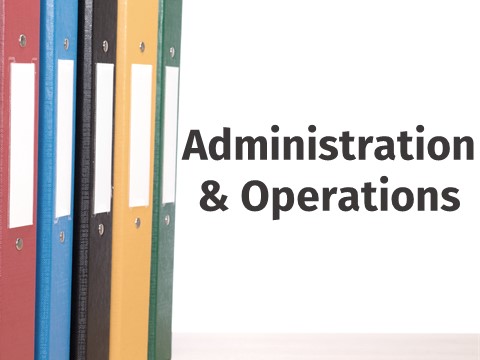Q&A Regarding Child Nutrition Program Oversight, Administration, and Reporting During COVID-19
April 19, 2021

Summary:
Given that Program operators may be operating different Programs at different times of the year than traditional operations, this memorandum includes questions and answers that are intended to provide clarifications to State agencies and Program operators regarding the oversight and administration of Child Nutrition Programs.
The following is a summary of the Q&A portion related to SFSP. For full guidance, read the full text HERE.
1. What Child Nutrition Programs do State agencies and local Program operators need to review?
State agencies and local Program operators are required to conduct monitoring of all Child Nutrition Programs, in line with Program statute and regulations, unless an alternative approach has been approved through an individual State agency or local Program operator waiver. The Food and Nutrition Service (FNS) issued several nationwide waivers to suspend on-site monitoring procedures and allow State agencies and Program operators to monitor Child Nutrition Program operations off-site in order to support social distancing and health recommendations. All other statutory and regulatory oversight requirements remain in effect.
2. What if the State agency or local Program operator encounters challenges meeting oversight and monitoring requirements during COVID-19?
If State agencies or local Program operators anticipate challenges in meeting any of the required review elements within the required review time frames, a waiver of statute or Program regulations can be requested in order to ensure compliance with oversight responsibilities.
3. Can State agencies request statewide waivers on behalf of local program operators?
Yes. FNS encourages State agencies to proactively consider if local Program operators will have challenges efficiently meeting monitoring requirements during the public health emergency.
4. If a school food authority (SFA) normally operates the School Breakfast and National School Lunch Programs, but is operating the Summer Food Service Program this school year, what Program is the SFA reviewed under?
Program operators are reviewed under the Program they are operating unless a waiver has been approved. However, Summer Food Service Program (SFSP) regulations at 7 CFR 225.7(d)(2)(i) include a provision that a State agency is not required to conduct a review of the SFSP in the same year in which the National School Lunch Program (NSLP) operations have been reviewed and determined to be satisfactory. Therefore, if an SFA received a School Meals Administrative Review in the last school year, the SFA does not need to receive additional review under the SFSP.
5. My State agency has previously monitored SFSP on a Federal fiscal year. Can we continue to do this in Federal fiscal year 2021?
For SFSP monitoring purposes, a State agency should use the definition of “year” they have used in the past. If a State wants to change the way they define “year,” a waiver is not required; however, they should communicate this change to local Program operators and in any applicable waiver requests. State agencies should also include whether they plan to change this definition again after Federal fiscal Year 2021.
6. What is the expectation for the SFSP sponsor review of sites within the first four weeks of operation?
Sponsors must review food service operations at each SFSP site at least once during the first four weeks of Program operations as required in regulations at 7 CFR 225.15(d)(3). If the sponsor reviewed the site within the first 4 weeks of operations and the site has continued to operate, as currently allowed through COVID-19 Child Nutrition Response #59: Nationwide Waiver to Allow Summer Food Service Program and Seamless Summer Option Operations through School Year 2020-2021 – EXTENSION, the review is considered completed.
7 May State agencies make advance payments to SFSP sponsors prior to June 1?
Yes. Section 13(e)(1) of the Richard B. Russell National School Lunch Act (NSLA) states that advance payments to SFSP sponsors should be provided “not later than June 1, July 15, and August 15 of each year,” and the regulations found at 7 CFR 225.9(c) state that “State agencies shall make advance payments by June 1, July 15, and August 15.” Therefore, there is no prohibition against making advance payments prior to June 1, when appropriate.
Procurement
20. How should the bonding requirement for FSMCs in the SFSP be handled, whena SFA amends their existing FSMC contract to add SFSP?
Program regulations at 7 CFR 225.15(m)(5) requires each FSMC that submits a bid for SFSP exceeding the simplified acquisition threshold (currently $250,000) to obtain a bid bond in an amount between 5 and 10 percent, as determined by the sponsor, of the value of the contract for which the bid is made. Additionally, 7 CFR 225.15(m)(6) requires every FSMC that enters into a food service contract for SFSP exceeding the small purchase threshold to obtain a performance bond between 10 and 25 percent of the value of the contract, as determined by the State agency.
Similar requirements for bid and performance bonding do not exist for NSLP. If an SFA adds SFSP to their FSMC contract a performance bond is required. The SFA should use the value of the contract that applies to SFSP to determine if it exceeds the small purchase threshold and the bond percentage (between 10% to 25%) should apply to the SFSP portion. If the FSMC enters into more than one contract with any one sponsor, the FSMC is required to obtain a performance bond covering the SFSP portion of all contracts if the aggregate amount of the SFSP portion of those contracts exceed the simplified acquisition threshold.
Contract modifications are subject to a cost or price analysis found in 2 CFR 200.323(a). The non-Federal entity must perform a cost or price analysis in connection with every procurement action in excess of the Simplified Acquisition Threshold including contract modifications. Once the cost or price analysis is obtained, the SFA or State agency legal counsel may determine if the change is material. State agency review and approval of such amendments is required prior to execution.
